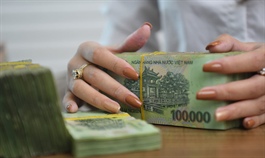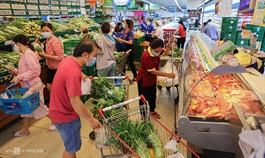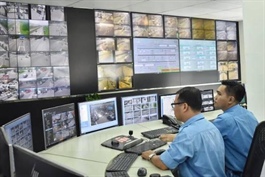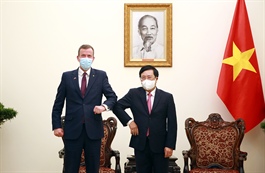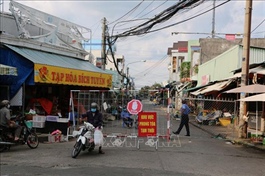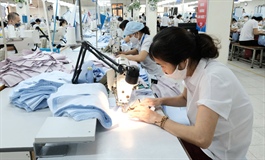Free trade deals offer opportunities for economic restructuring
Free trade deals offer opportunities for economic restructuring
Vietnam needs to take advantage of free trade agreement (FTA) opportunities to restructure its economy in an efficient and sustainable manner, said Dr. Vo Tri Thanh, Director of the Institute of Branding and Competition Strategy, in an interview with Vietnam Economic News’ Thu Phuong & Hoa Quynh.
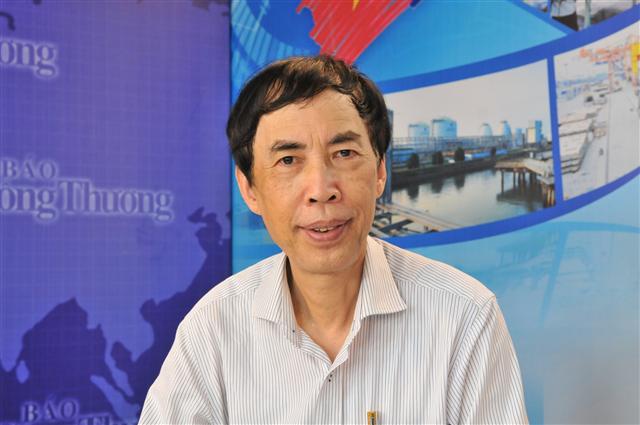
Dr. Vo Tri Thanh, Director of the Institute of Branding and Competition Strategy
|
Could you tell us about the international economic integration challenges Vietnam faces?
FTAs not only benefit Vietnam but also pose numerous challenges associated with globalization, free trade and protectionism; direct investment capital flows and shift of supply and value chains; and shocks such as the Covid-19 pandemic and natural disasters, which all create uncertainty and risks in production and business even at the macroeconomic level.
However, Vietnam has advantages in terms of its labor force, natural resources, connection centers, and supply chain optimization based on digital services and technology. Most of Vietnam’s FTA partners are strategic partners, reflecting their trust in Vietnam.
I think in the new context, Vietnam still has many opportunities related to the country’s integration, strategies and performance. Any “game” has two sides and the players must accept challenges and endeavor to minimize risks in order to move forward.
While FTAs help Vietnam boost economic and production restructuring, domestic businesses must meet strict requirements of trade partners as a condition for tariff preferences and export market expansion. Do you think this is a big barrier to the Vietnamese economy and businesses?
Non-tariff measures remain controversial and challenging for businesses. Non-tariff measures are set in accordance with environmental protection and national security standards, and businesses must learn and improve to meet those standards. Experience shows that Vietnamese enterprises exporting to North America and Europe have seen their competitiveness and brand improved in these markets after meeting such standards.
For example, while meeting ISO 8000, labor and environmental standards in the EU-Vietnam Free Trade Agreement (EVFTA) and the Comprehensive and Progressive Agreement for Trans-Pacific Partnership (CPTPP) is a challenge and costly in the short term, it helps businesses reach sustainable development and accomplish corporate social responsibility. Social responsibility, environmental responsibility, and economic efficiency are all at the same time crucial for sustainable development and long-term profit. I think we should look at non-tariff measures from that perspective.
Some countries abused certain barriers to protect domestic production. Dealing with such cases requires market diversification and dispute resolution mechanisms to reduce risks.
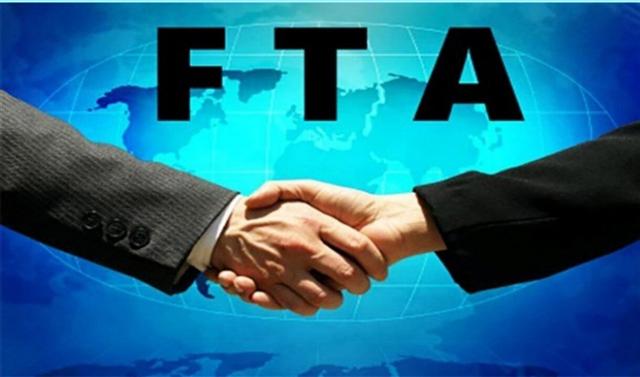
FTAs help Vietnam maintain export growth
|
The world economy is unpredictable and Vietnam needs to take the initiative in international economic integration. What should Vietnam focus on?
Vietnam is engaged in comprehensive international integration, with its core being international economic integration. Integration has promoted domestic reform and created a large and favorable playground for businesses, and helps the country attract quality and efficient foreign investment.
Integration also helps Vietnam restructure its economy in order to provide a transparent and fair business environment. Vietnam needs to perform economic restructuring in an efficient, sustainable manner and in accordance with new trends, including technology trends.
At the microeconomic level, apart from improving competitiveness, optimizing resources, and learning about processes, businesses must comply with commitments, especially fulfill commitments of high-quality FTAs, otherwise they risk paying dearly for failure to do so.
Although it has obtained great integration achievements, Vietnam hasn’t made sufficient use of integration advantages in attracting foreign direct investment (FDI). While FDI enterprises have become a very important part of the Vietnamese economy, their connection with small and medium Vietnamese enterprises remains poor.
Vietnamese enterprises need to improve technology and performance, take advantage of the fourth industrial revolution to boost digital transformation in order to develop products and marketing, and improve customer interaction, governance, business methods, and worker skills.
The world is full of uncertainty and potential risks. Learning how to avoid risks and/or how to manage them is vital for enterprises, as is learning how to deal with disputes, if any.








